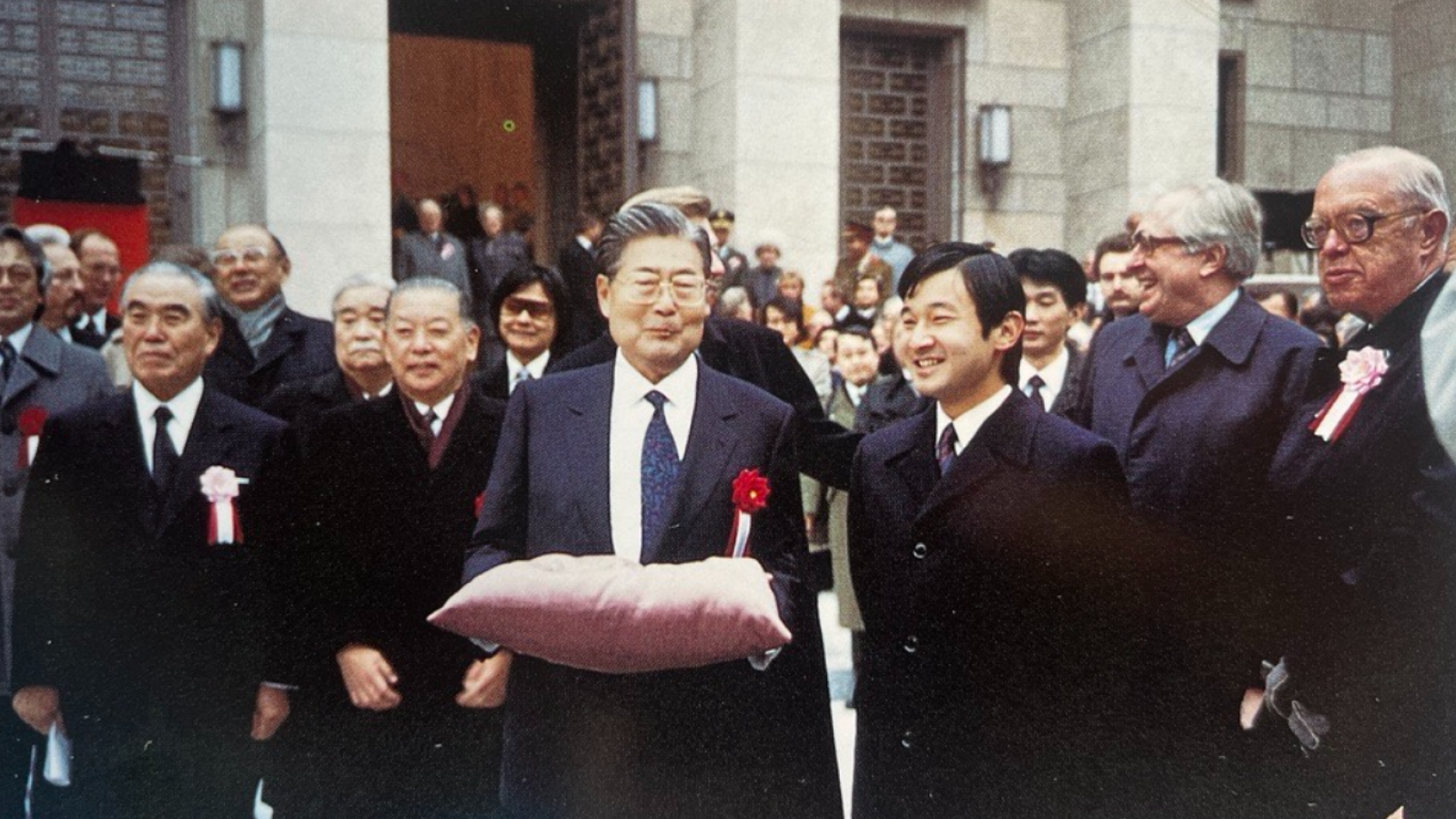
On January 15, 1985, exactly 40 years ago today, the Japanese-German Center Berlin was established as a foundation under German civil law - at the initiatives of then Prime Minister Yasuhiro Nakasone and Federal Chancellor Dr. Helmut Kohl and an agreement between the governments of both countries, which was signed in March 1985. It was during the Cold War, when Germany and Berlin were divided, as Germany and Japan strived to contribute to the international community through their cooperation as democratic countries, and Germany’s interest - and respect - for Japan as a rapidly emerging economic power after the war had greatly increased. Both sides felt the need to establish continuous bilateral exchange, and thus emerged the idea to create a physical space for exchange away from official political venues.
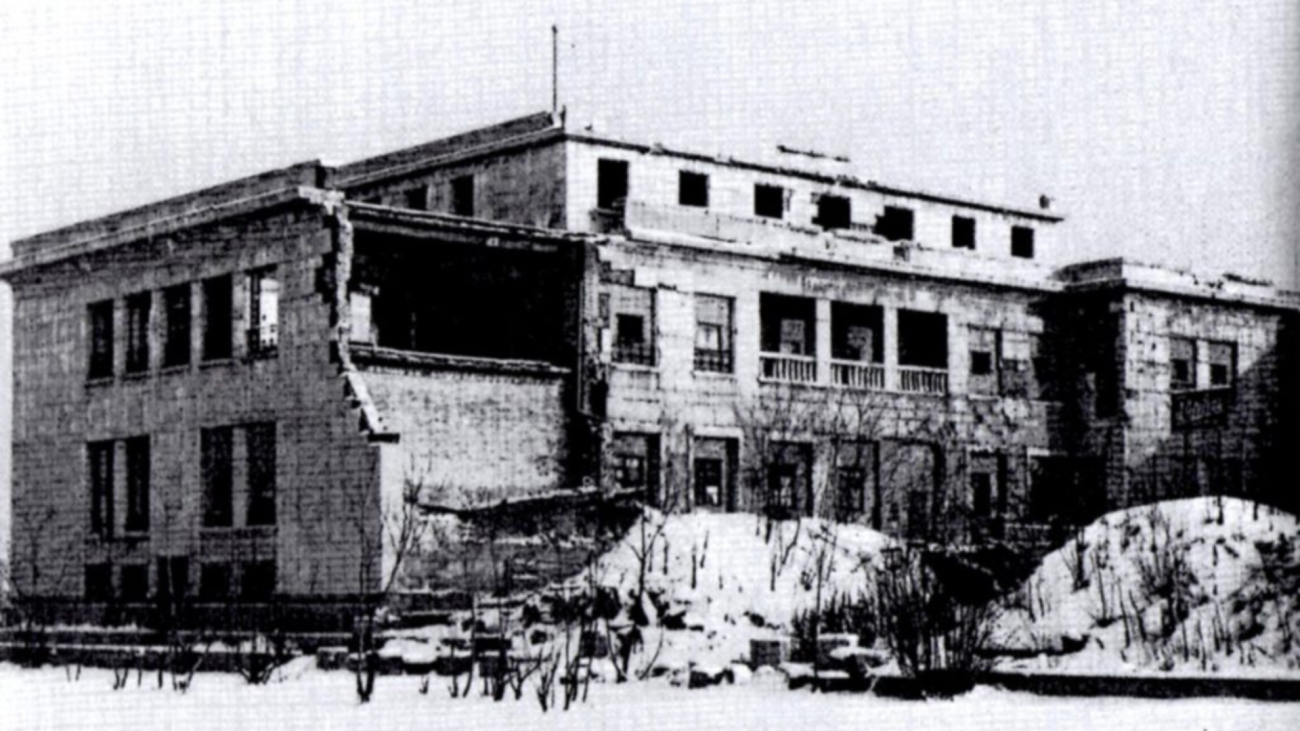
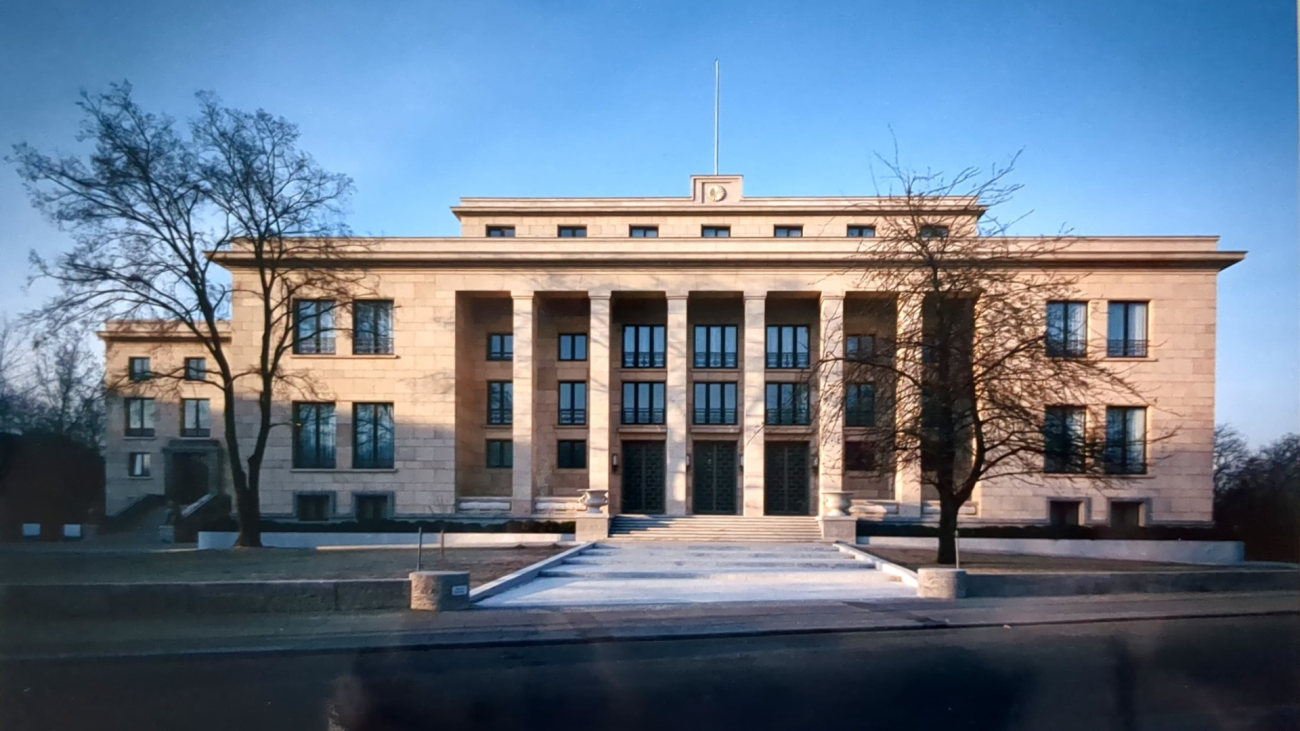
It was fortunate that the Japanese government could provide its former (and current) embassy in Tiergarten for this purpose, which had been severely damaged during World War II and abandoned as a desolate ruin after 1945. The Japanese side rebuilt and donated the building, and the German side provided the foundation capital. The Federal Government’s obligation was assumed by the State of Berlin, which provided the founding capital. To this day, the running costs are shared equally between the Japanese and German governments.
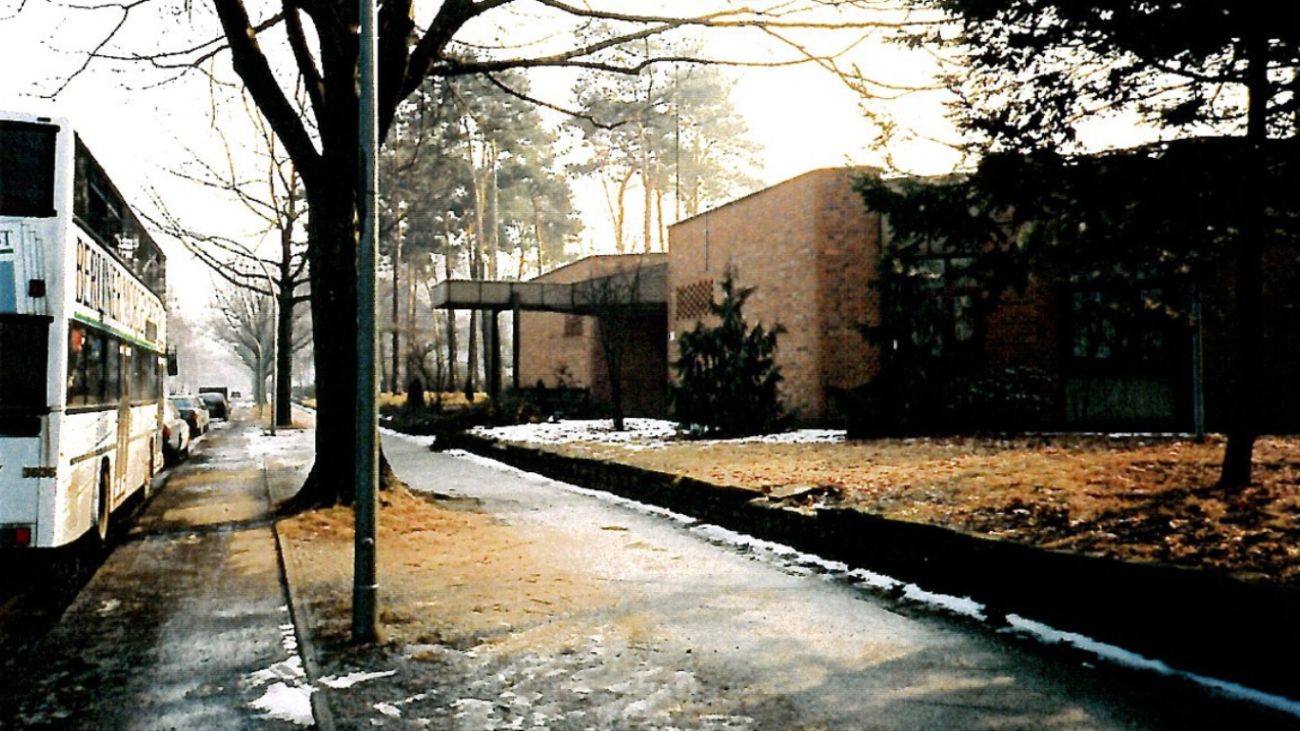
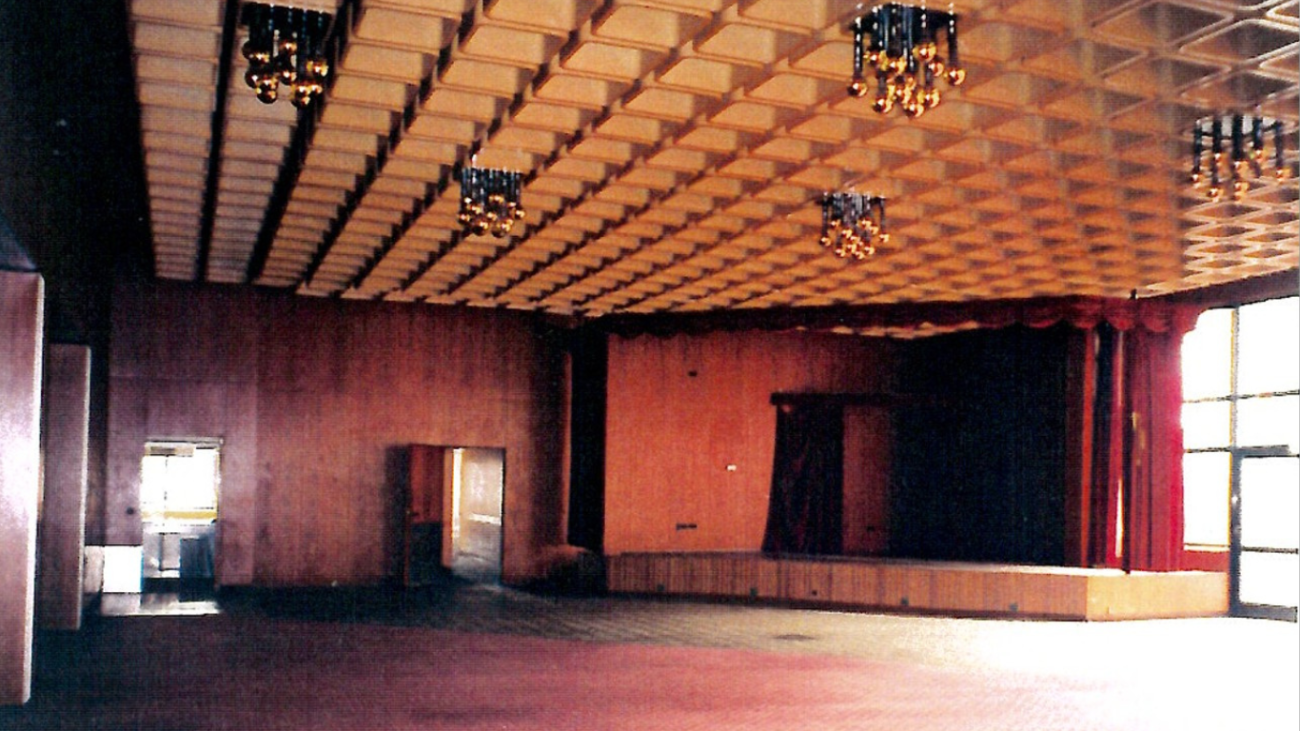
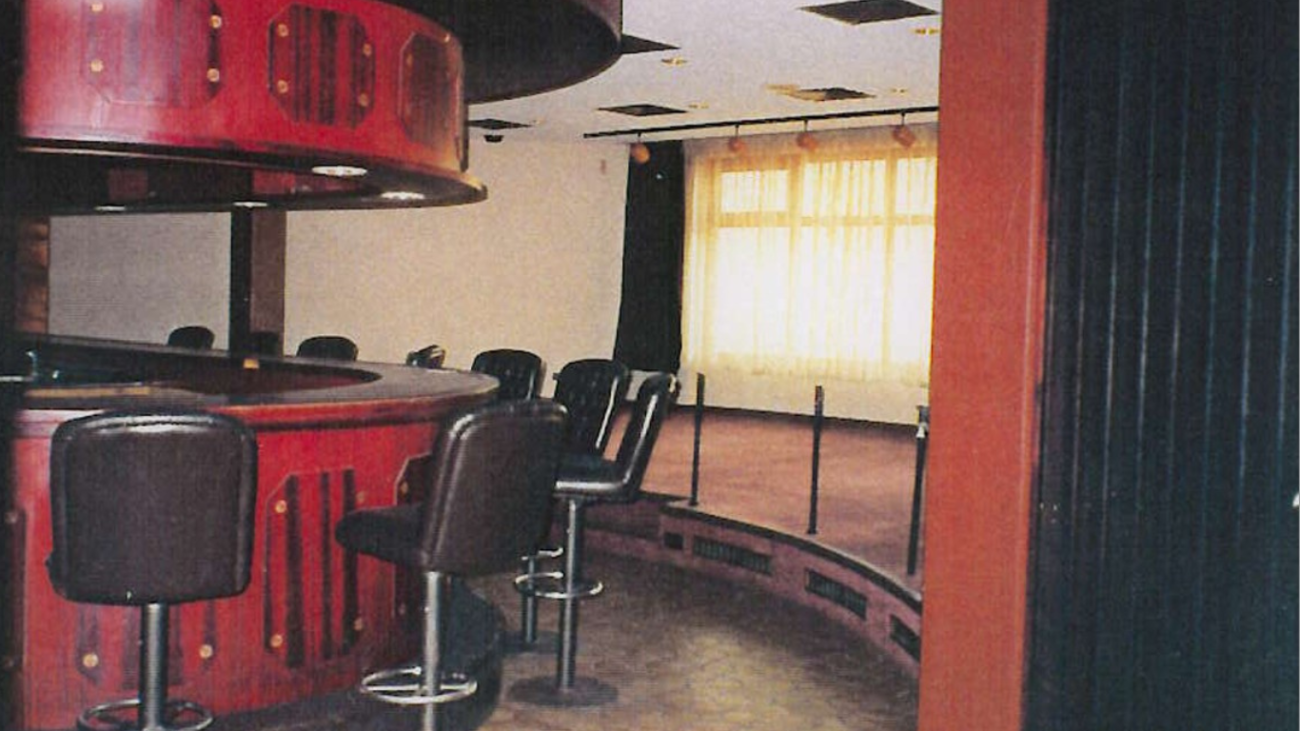
Subsequently, a number of companies and organizations have participated in financing the JDZB and its projects. Today, we see ourselves as an exchange platform and co-operating space and explicitly invite organizations and companies to invest in the JDZB and its mission. In November 1987, after a developmental phase of nearly three years, the JDZB was inaugurated with prominent participation as part of Berlin’s 750th anniversary celebrations. In April 1988, it began full operations (until then, it had temporarily rented some rooms on Kurfürstendamm).
After German reunification in 1989 and the German Bundestag’s decision to move back from Bonn to Berlin, it became clear in 1991 that the Japanese government would need the building again as its own embassy, and so the building was returned to its original purpose.
The former Non-Commissioned Officers’ Club of the American forces (known as "Checkpoint NCO Club") in Berlin-Dahlem, located on federal land property, was selected as the new location for the Japanese-German Center. The existing event space was extensively renovated, and an administrative wing was newly built with financial support from industry, allowing the move to take place in 1998. The inauguration was held in June in the presence of founding father Yasuhiro Nakasone, former Prime Minister of Japan.
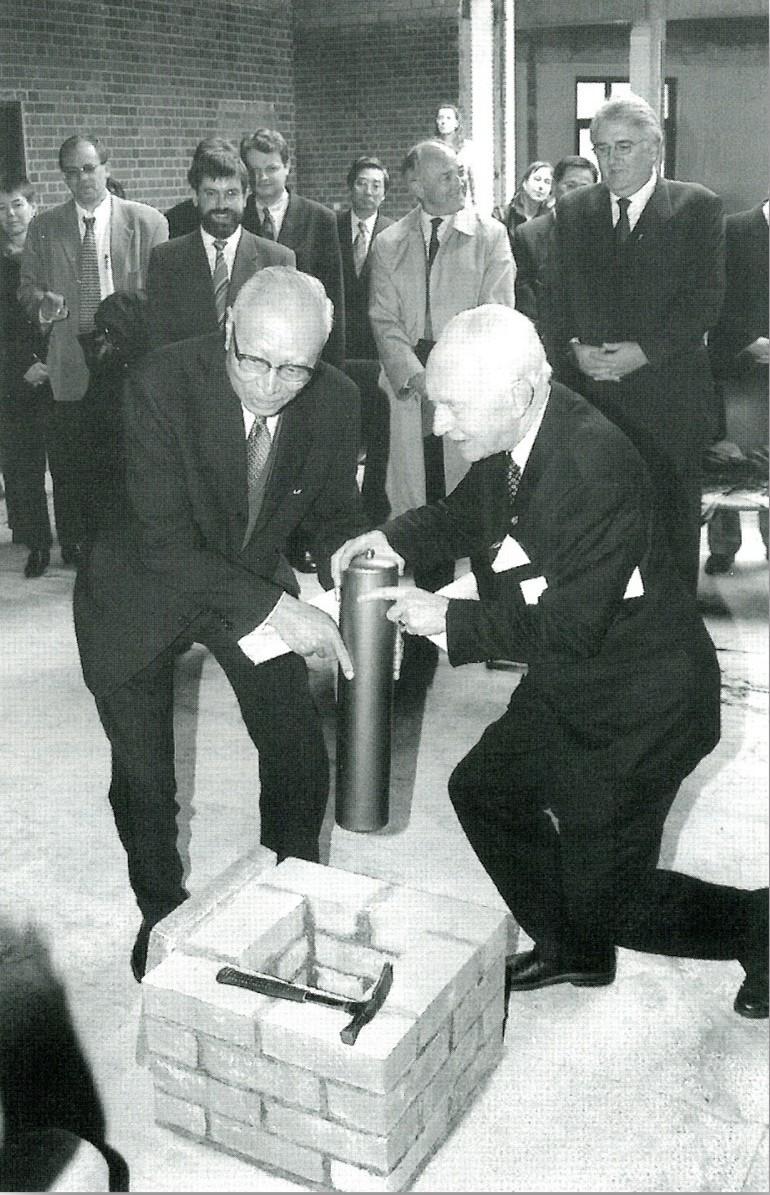
Here we organize various events, exhibitions, exchange programs, and courses, often in cooperation with other players from different fields, and also make our facilities available to third parties – all with the aim of promoting and deepening Japanese-German and international exchange at the economic, political, and social levels.
The building is multi-purpose and now equipped with state-of-the-art video conferencing technology. We have a digital interpretation and professional sound system, a high-end projector, and fast internet connection for hybrid setups and immersive event formats. In addition to a large hall, there are various seminar, course, and meeting rooms, a networking lounge with coffee corner, info lounge (library), spacious exhibition areas, and a beautiful garden.
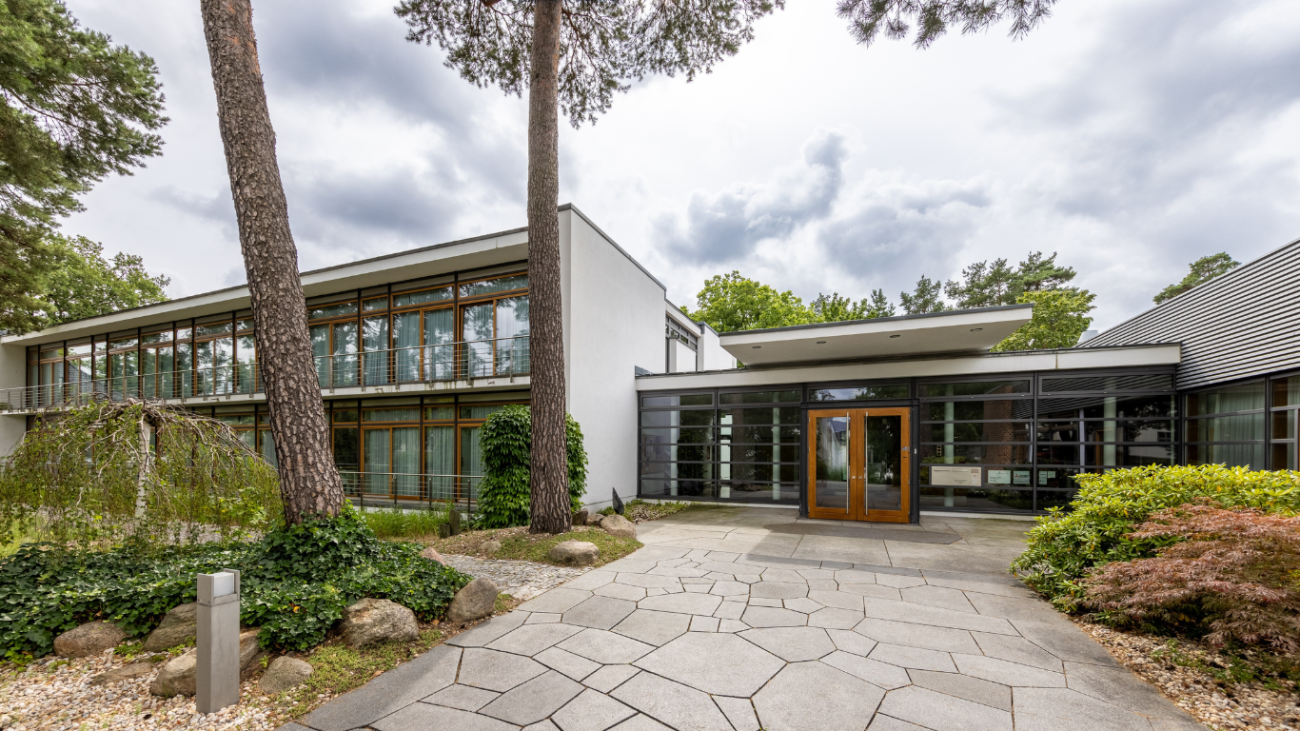
40 years after its founding, the JDZB is perhaps more important than ever today as a place for friendly encounters between people of our two countries and dialogue as equal partners against the backdrop of global political developments. We are definitely ready and full of energy to continue initiating sustainable exchange with ever-new topics, new emphases, new partnerships, and new ideas, thereby making the contribution to international understanding that our founding fathers desired.
Become part of the network by joining our Co-Operating Club or using our facilities, realizing your projects together with us, visiting our events and exhibitions, participating in our exchange programs and courses, subscribing to the JDZB newsletter, and following us on social media. We are also grateful if you support us and invest in our projects. Please feel free to contact us!
#JDZB40 #40Years
